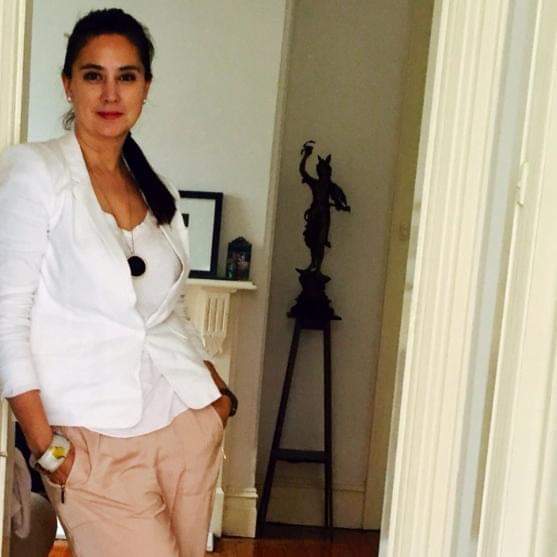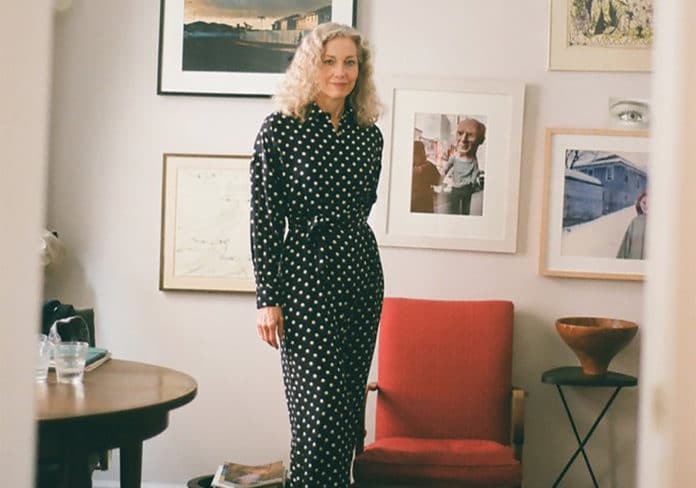Datura has been on our radar lately for its age agnostic, shape agnostic, classically modern women’s fashions. One of their big fans is our own Jocelyne Beaudoin, style master extraordinaire. When Jocelyne tells us we need to check something out, we listen.
Ageless, Sustainable Fashion
At 37, Stefania Borras is the designer and creative director of Datura. Her brand was named after the mysterious datura flower that blossoms at night. Datura styles are beautiful, timeless pieces worn by women of all ages and available exclusively on the web. The inspiration for Datura was to bring the feel of untouched nature to our everyday urban lifestyles and create a style community where the customer is in direct contact with the brand. We love the philosophy of fashion that is sustainable and dresses women of all ages with timeless elegance reflecting the beauty and individuality seen in nature. In a world where fast living and fast fashion is at odds with nature, Datura shows us a wiser approach to personal style.
It is late morning in Majorca, Spain and early evening Sydney time. Having just moved back to Spain from New York, Stefania manages to find an hour to sit down and chat with me about fashion, her inspirations, new ways of working, and new ways of dressing between nature and the city in this post-lockdown world.
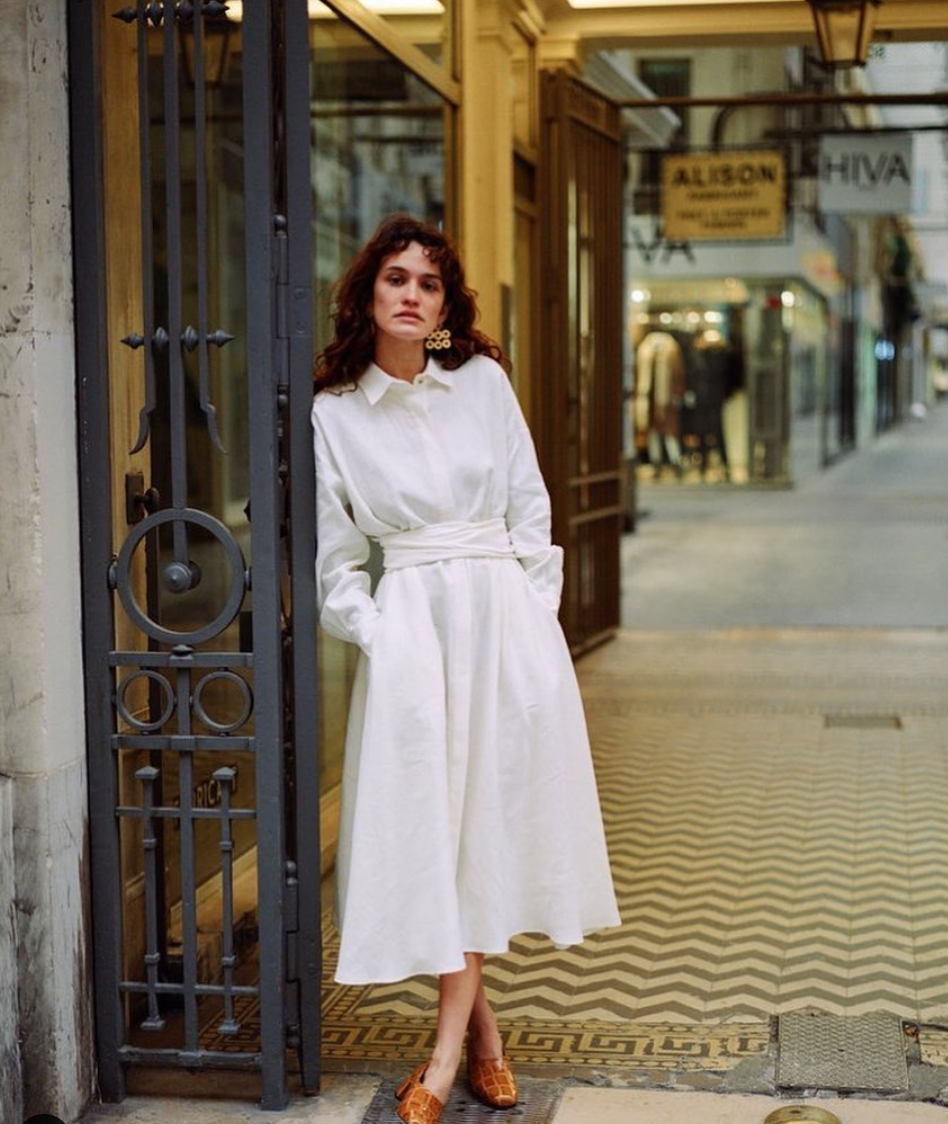
“Every person makes it so individual. Individuality is like nature too, right? And that’s the beauty of it.”
Can you tell me a little bit about your philosophy of style and how you arrived at slow fashion?
Well, I grew up on the island of Majorca. It’s quite cosmopolitan, in a way. It’s not like a big city but it does have a lot of international people living here. I just loved growing up here, going to a really small school and… (A momentary interruption from a short, bobbing blonde mop of hair trundling across the bottom half of the Zoom screen…) Sorry, it’s my daughter Echo here… (She places Echo on her lap and continues…)
I studied in Barcelona; it’s much more of a big city and I missed that part of nature’s clean and rawness and just feeling free in that kind of way. One of the reasons that I wanted to do all natural fabrics is because they’re biodegradable and, for me, these fabrics are what feels like luxury. When you’re wearing something that is silk or cotton, cashmere or wool it just makes me feel more elevated, just the feel of it on your body.
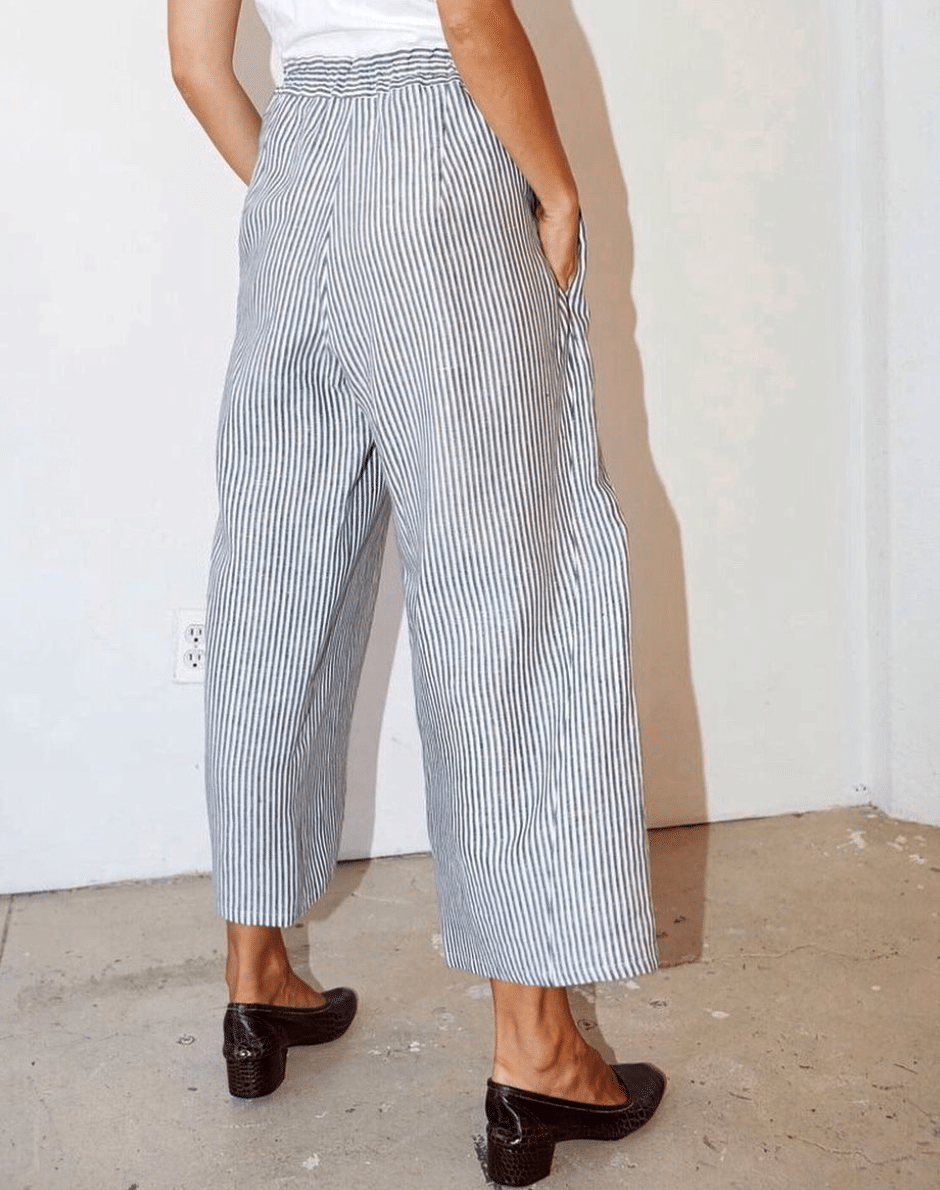
It worked even better when I was in New York. It was about bringing that philosophy of nature, like nothing’s perfect but it is perfect because that’s the way nature wants it to be. It’s quite simple in shapes but everyone wears it differently, everyone knots it in a different way. I wanted our customers to see how it’s not only for a model, it’s for different kinds of people — all ages and all body shapes — and how every person makes it so individual and their own style. Individuality is like nature too, right? Like there’s no tree that’s the same. And that’s kind of the beauty of it.”
Stefania is of both Spanish and British heritage; her mother is English and her father Spanish. Stefania was born in Majorca and grew up there. She speaks with a charming English accent and describes ‘women’ plural as ‘woman’ in all her references to them in their style, as if to honor the individual woman even when we are referring to them as a group.
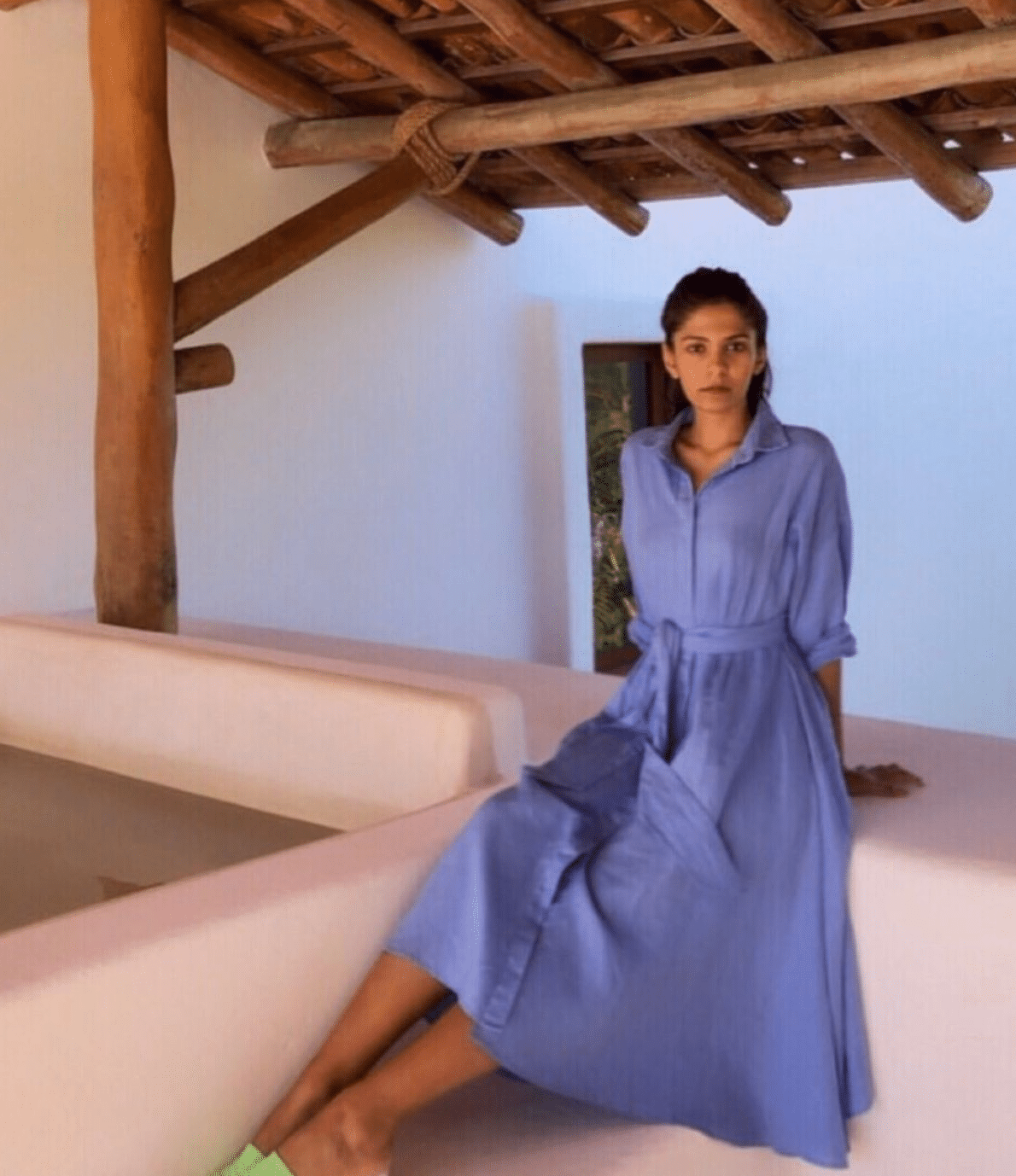
Style Community
You talk about individuality and individual style a lot, but you also talk about community. What’s important about community to you?
Yeh, I just think it’s important for a brand to speak. Not only from the brand’s point of view as in, “This is what I like, this is what I’m selling, buy it or not.” I think it’s just nice to include people’s voices, what people want to show. At the end of the day, Datura isn’t a brand that sells through stores; it’s direct to the consumer, so I feel like the consumer’s voice is very important. I think it’s a bit the same with the member styles — it’s kind of a community.”
Thoughts on Fast Fashion
I just read a headline today in The Guardian that Zara is closing over 1000 stores. Any thoughts?
You know, fast fashion is just a hard subject. One of my main reasons for doing Datura is because I was quite young when I lived in Barcelona. I lived in the main street so it was difficult to not go in [to Zara] and be like, “Oh, I’ll just buy a little top because it’s cheap” and I ended up just with all these bags of clothes in my room. It’s like you really wanted that item, but once you purchased it you felt like it wasn’t special anymore for some reason. That just made me feel like that was just such a waste.
It’s true, though, that some people on lower incomes should be able to access cheaper clothes. But it’s a question of who is making the clothes. What are the conditions for them? All this waste it produces, like this stock-waste because of how everything works like people having to have these crazy minimums to get that lower price and then having to destroy thousands of thousands of garments, it’s just crazy.
“I felt like I was doing something good in the world”
At what stage did it become a conscious process of really giving it some thought in terms of the ethical chain of supply?
When I was around 25 years old. Fashion can have the thinkers, the designers, then there are others who live from it, like there’s another industry. I think I felt depressed at that time and perhaps didn’t feel right about what I had chosen to study. I worked for a few companies and just seeing how everything worked. I think that with the clash of not always wanting new stuff and not feeling special about that stuff, that I’d already chosen to do this. So that’s when I knew I had to do something that made me feel good. I thought then, “Well, maybe I won’t make as much money; I won’t be a huge brand… I don’t know. I’ll definitely try.” But, you know, I felt like at least I could live with it. I felt like I was doing something good in the world.
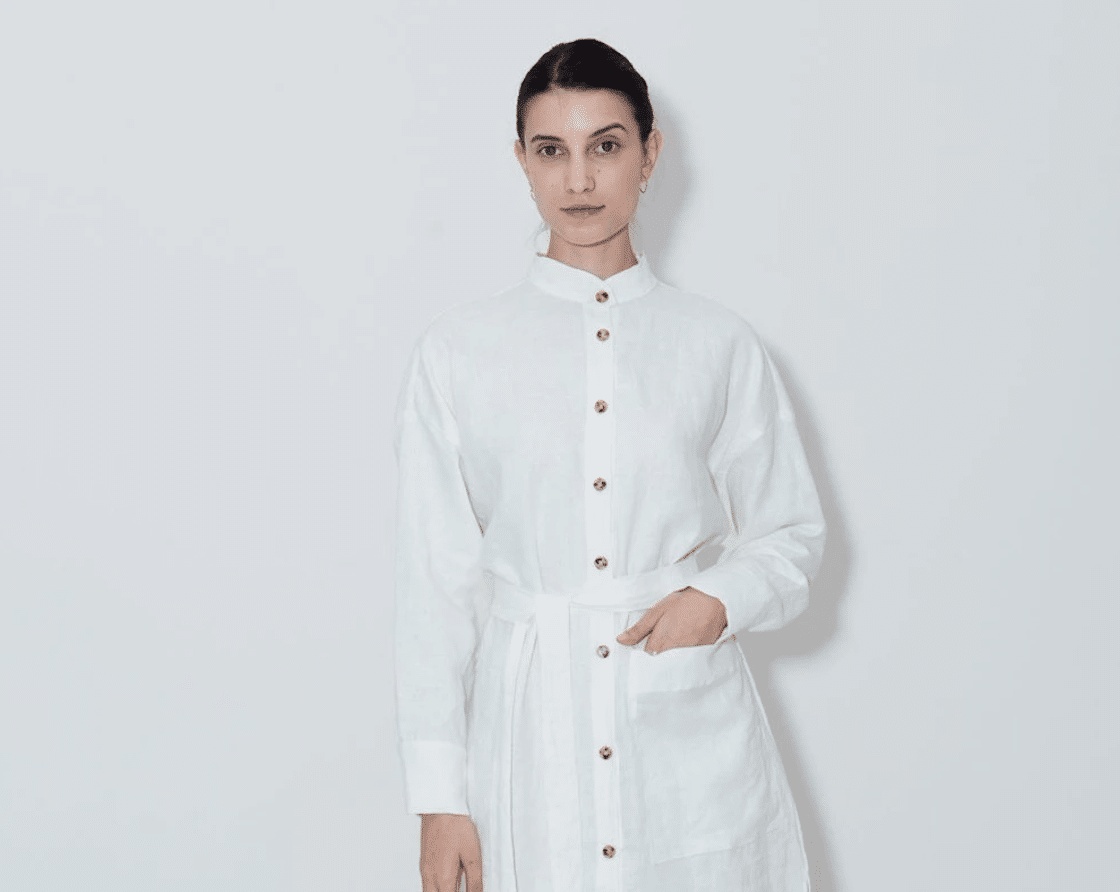
Fashion Post-Lockdown
Was the move back to Spain because of this lockdown, or were you going to be moving back anyway?
Ah no, I was going to do that [move] anyway. I suddenly felt that being in New York was a bit harder. I just saw it in a different way. Like, before it was all fun, it was going out to dinners and spending and working; you know, it was just like this hamster wheel where you work, work, work but try to have fun at the same time. And when I got pregnant, you know, you have to slow down. That slowing down made me realize that maybe it was time to go soon.
And how do you think this prolonged period of lockdown, other than affecting the way we operate, will affect the way we dress?
I feel like, when reading stuff, a lot of people have been in lockdown and it’s summer and that they are ready to buy something new and feel free. They may not have as much money, but I sense that people are wanting to get out. I think people were conscious before about the office and what can be worn or what can’t be worn. Before there was a big industry around office-wear and there was this whole industry where woman goes to the office and needs to wear something different every day, because they feel judged by other workers — that will change, I think.
“When you get older, you become more selective”
Speaking of the very high standards that women are often held to, what are your views of the intersection between age, gender and fashion and what is your own philosophy and evolution of style as you get older?
I mean, the only difference I see with age and getting older is I feel like when you get older, even in your late 20s, I think the “less is more” philosophy means you become more selective. I think it’s all in here (motioning to her head/brain). Y’know, I might see a woman in her 70s and she can have a better body than I do. I really don’t feel like age is so important. I have customers of every age; you know, like the daughters and the mums, or grandmothers. I think it’s really just about wanting to feel good.
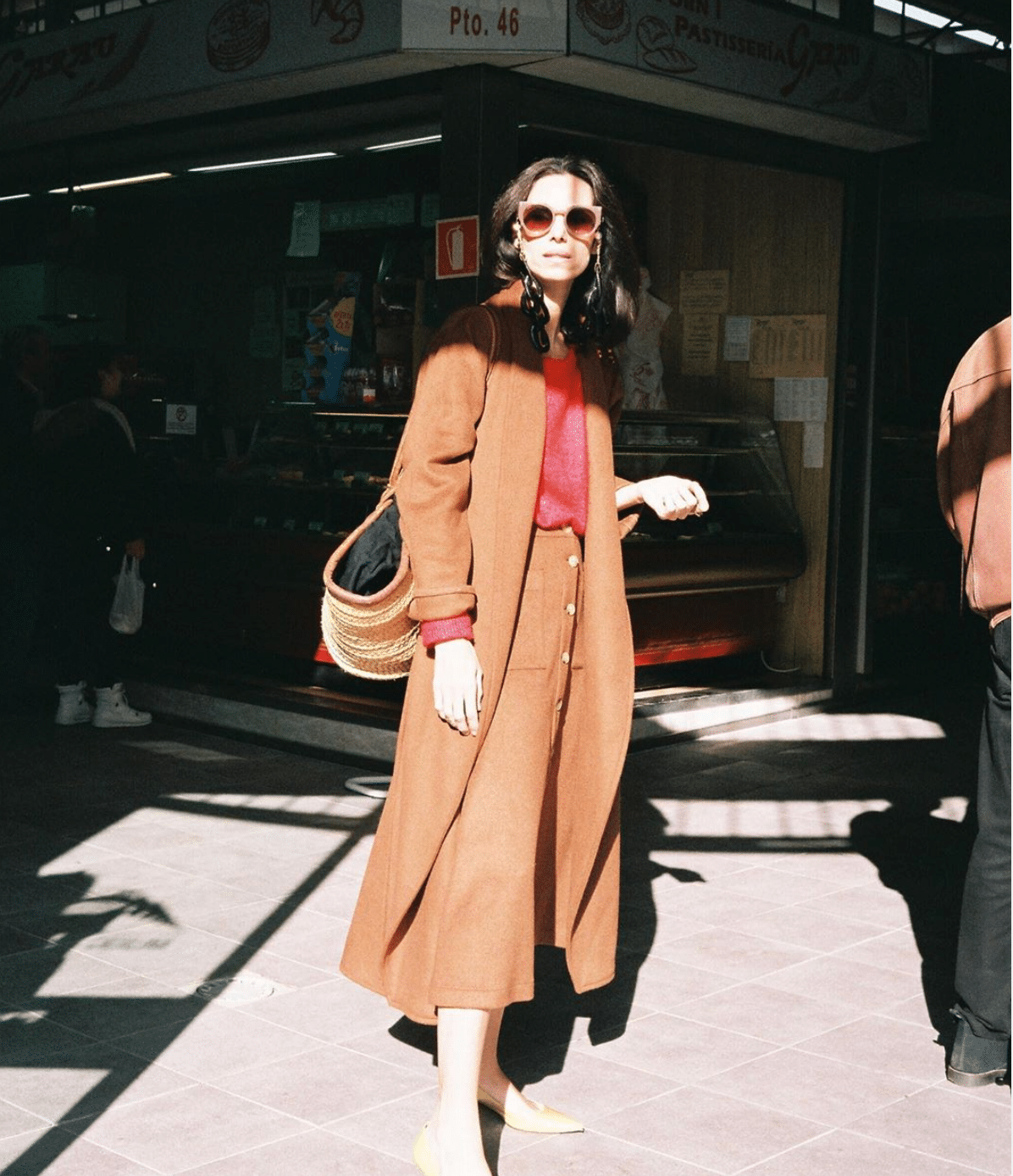
If a Design Works, Keep It in the Collection
You mentioned that it’s not so much seasonal anymore, that it’s constant production. Whereas before things may have been forecast in advance, is this because everything is online?
Yes, with my previous brand I was trying to be in stores and go to showrooms and do the marketing and I just found it a nightmare. I just thought that some styles, after three seasons, if customers say they like it and can we do it again, then we will. In the past it was just done to consume more where you throw out old and bring in a new style. But some pieces are timeless, and it can work forever. That’s what I try to do. We have a coat that I’ve done, I did the first year of my previous brand, it’s now ten years old. It’s my best seller and people still wear it and if I see the people in the street and they say they love it and they’ve got it in two other colors, that makes me really proud and I love that.
“My style’s more understated but you still stand out”
Would you say your fashion does have a timeless elegance that appeals to all ages?
I think that a part of the brand is it’s quite elegant but classic and does work for every age. It can be any woman. My first designs that come to my head are a little crazy but I try to be more commercial; not in a boring way, but I try to see if it’s going to work for different kinds of people. Like the polka dot jumpsuit — it’s not so crazy but people are like, “This is my special piece that I wear when I want to look more fun,” or whatever. When I say crazy, there’s brands that are wearable but then there’s brands that are like hello-I’m-here crazy. That’s not my style. My style’s more understated but you still stand out.
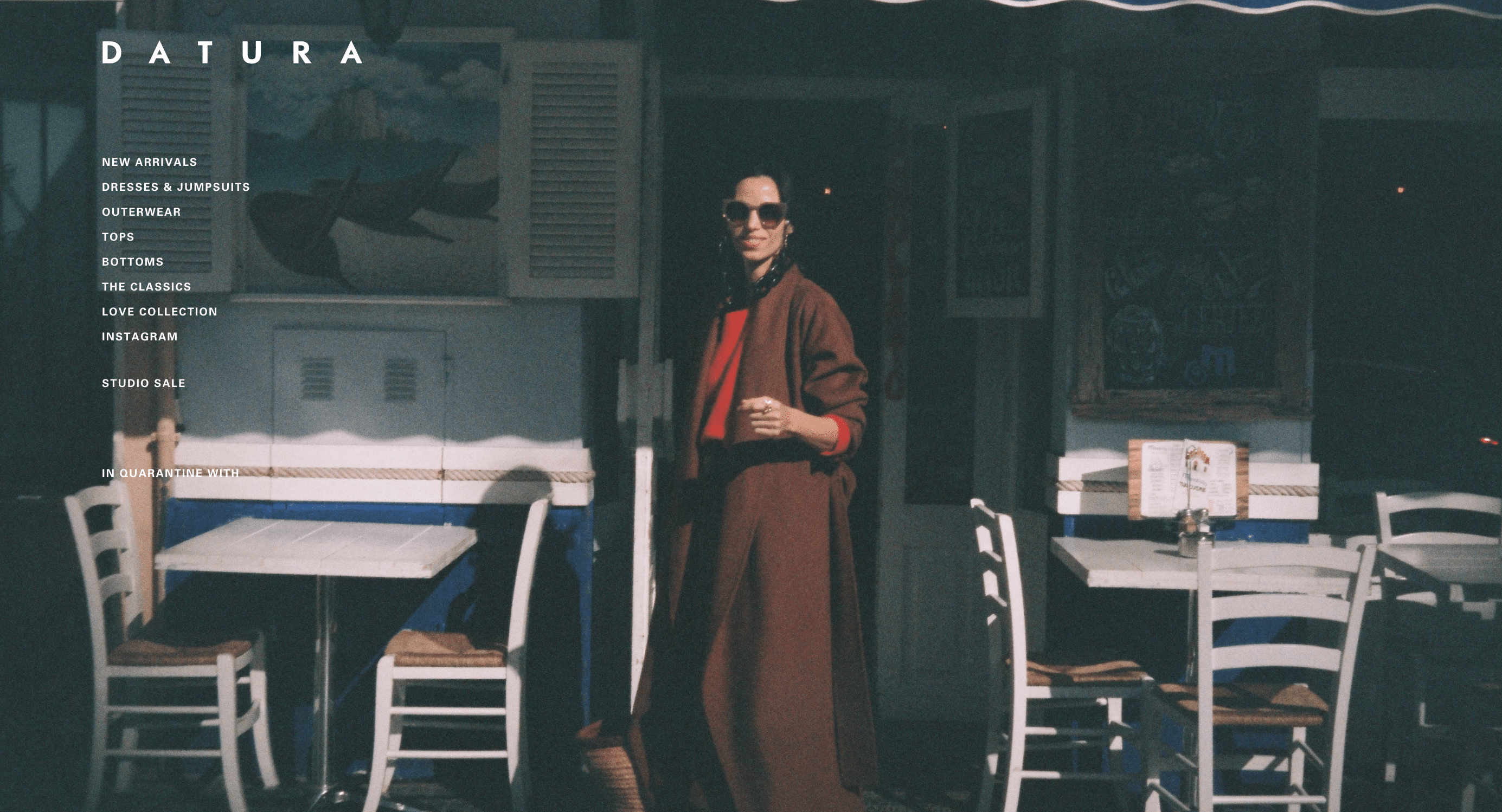
By Natasha Ginnivan, 50. Formerly a fashion designer in her 20s & 30s, she returned to study psychology in her 30s – 40s. Her interest in aging was piqued by a psychology assignment on implicit attitudes and age stereotypes in her first year back to university as a mature-aged student. She went on to obtain a PhD in psychology and aging examining cultural attitudes around age stereotypes. Natasha researches and writes about a broad range of age-related topics including fashion, lifestyle projects, or late-life vocational calling, aging & transformation and intergenerational learning. Natasha’s blog is mobilisingwisdom.com.
